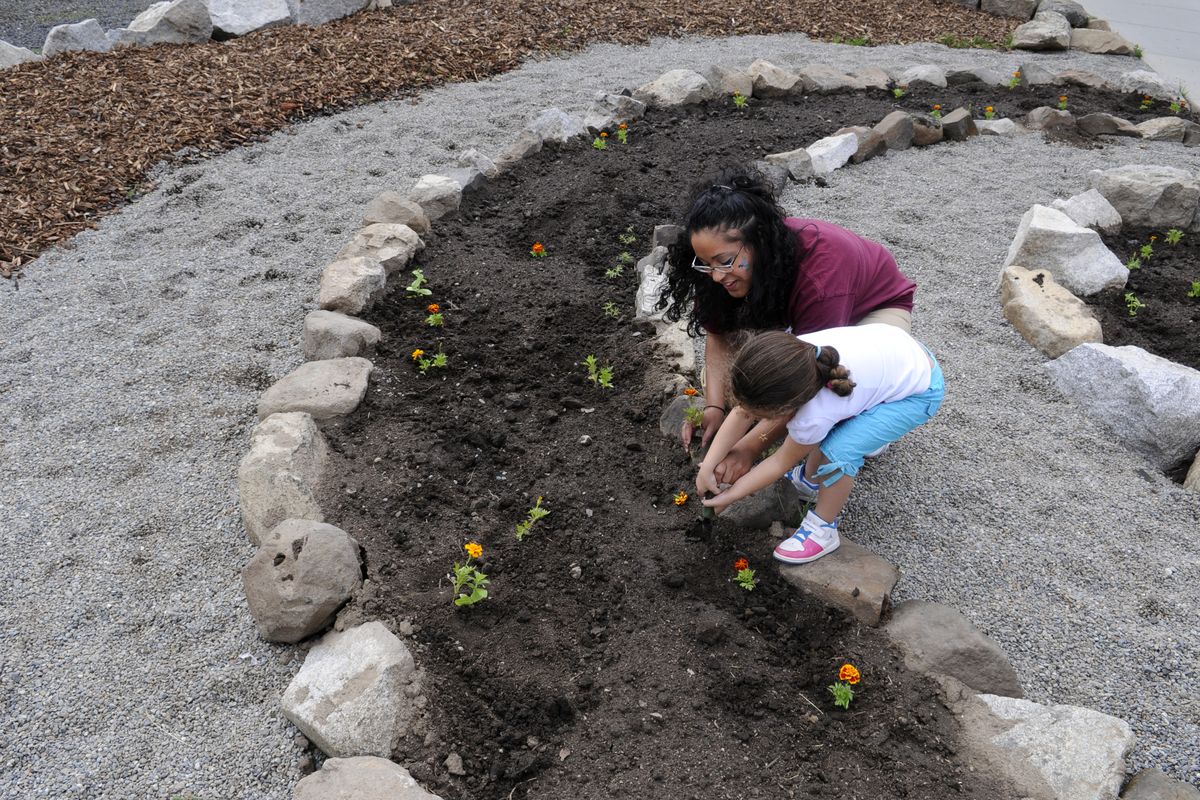Pine Lodge inmates cling to families

With 23 months left on her prison sentence for drug-related crimes, Saturday likely was the last time Chanel Trim will hold her 4-year-old daughter until her release.
Like all inmates housed at the Pine Lodge Corrections Center for Women in Medical Lake, Trim, 25, is being transferred to a Western Washington prison at the end of the month when the facility closes.
Those with children and families in Eastern Washington say the closure of the women’s prison leaves them without the support of their loved ones, an important factor in rehabilitation.
“My family won’t be able to make that trip often, if at all,” Trim said. “This facility provided me with a lot of options. Here, I feel like I’m not just a number. I don’t think I’m going to see that over there.”
With the closure looming, on Saturday Trim and other inmates enjoyed the facility’s last Mother’s Day celebration, an annual event where families come and enjoy a day of games, food and quality time.
Offenders and their children and families walked together in the yard, played football, made sidewalk chalk art, planted flowers, hugged and laughed. Children chased balloons, colored with their mothers or grandmothers, and made paper flowers or other crafts.
“It provides a bridge for them to get back into the family,” said Tawni Earlow, the Corrections Program Manager at Pine Lodge. “It’s also healthy for the children to be with their moms.”
Unlike other prisons, Pine Lodge doesn’t have cells, bars or other things that make it feel institutional, offenders and their families said. It’s an environment that seems less traumatic for their children.
“It’s comfortable here, and not scary; they (my kids) don’t ask as many questions,” said Roxanna Privett, 30, who is serving a 19-month sentence for drug-related crimes.
Privett’s mother and father, Chris and Steve Druce, travel from the Tri-Cities every other weekend so that Privett can see her two sons, ages 4 and 9. The Druces have temporary custody of the children.
“That has made an incredible impact on her success,” said Chris Druce. “We are all very upset by the closing. Seeing her boys has helped a lot, to have her family close and know we support her.”
Prison officials said they tried to keep the offenders with families in Eastern Washington at the facility as long as they could. So far, 27 women have been transferred to the other two facilities for women, both west of the Cascades, said Superintendent Walker B. Morton.
“That was our priority; that those from the East Side would be with their families as long as possible,” Morton said. The state Legislature ordered the Department of Corrections to shutter Pine Lodge to help fill a budget gap this year. Lawmakers say they will save nearly $55 million by closing or reducing state prisons.
The facility first opened in 1978 as an all-male, 80-bed medium/minimum-security prison, and morphed many times over the years before opening as an all-female facility in 2004.
Of the unique features available at prison for women is the Therapeutic Community, a 12-month intense behavioral and chemical dependency treatment program.
Unofficial data at one time showed that there was five percent or less recidivism rate for the women who participated in the program, said Helen Biddulph, Pine Lodge public information officer.
“It’s been very successful here,” she said. “The program gives them the tools they need to stay clean and sober; we want them to stay out and be successful.”
For security reasons, most of the offenders and their families don’t know where they will be at the end of the month, but there are only two options: the Mission Creek Corrections Center in Belfair, Wash., located in a remote area south of Bremerton; and the Washington Corrections Center for Women in Gig Harbor. The facility, also known as “Purdy,” is the intake site for female prisoners throughout the state.
“It’s going to be devastating,” said 21-year-old Kelsey Peone. Peone, a Spokane resident, enjoyed an emotional visit with her mother, Julie Peone, on Saturday. Kelsey Peone is serving an 18-month sentence for delivery of a controlled substance.
“I am trying to change my life,” she said, “and they are taking away my support network.”